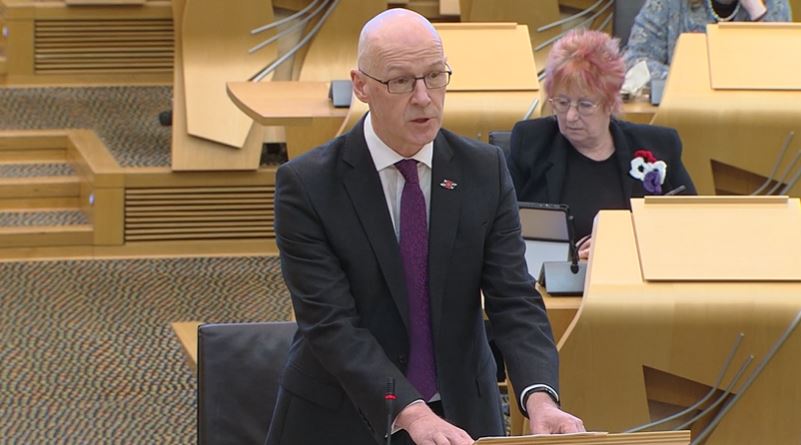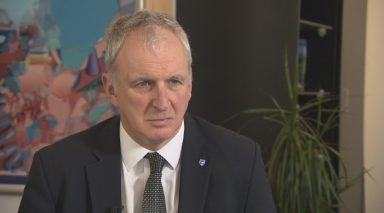John Swinney has defended the decision to re-impose Covid restrictions in Scotland, despite figures indicating that fewer than 100 people have been hospitalised due to the Omicron variant since the strain first emerged.
According to official statistics, only one person in the country with a confirmed case of the variant has required intensive care treatment during that time.
Data is due to be published by Public Health Scotland on Wednesday providing further detail, whilst First Minister Nicola Sturgeon will make a statement to the Scottish Parliament.
Tougher restrictions were introduced in Scotland in December in response to a rising number of cases of the Omicron variant.
The changes, due to last for a period of three weeks, has seen the closure of nightclubs and the cancellation of large events, with fans effectively shut out of Scottish Premiership football matches.
Meanwhile, businesses in the hospitality sector were hit by cancellations during the festive period as people were urged to scrap plans for work Christmas parties and to reduce their contact with other households.
Social distancing was also re-introduced for venues including restaurants and cinemas, with table service in venues serving alcohol.
On BBC Scotland’s Good Morning Scotland programme on Tuesday, deputy first minister Swinney was asked how many people are in hospital because of Covid, and how many were in hospital with other health issues but had tested positive whilst there.
He responded: “Further data will be published on that question tomorrow from Public Health Scotland which will give us some greater detail about this.
“But you are correct to point to the fact that there has been a significant rise in hospitalisation, the numbers have gone up by 476 since the pre-Christmas period, which is a very substantial rise, there’s over a thousand people now in hospital who have Covid.
“Now, we’ve got to take care to make sure that we understand the details of their circumstances and that work is being undertaken because that clearly is significant in judging the steps that we’ve got to take.
“But I don’t think in that analysis we should lose sight of the most important point that whatever is the situation or the rationale behind an individual having Covid and being in hospital, numbers of that magnitude put an enormous burden on our National Health Service.
“Coupled to the fact that there will be pressures on staff numbers because of the number of members of staff who are having to be off work because of Covid, or the requirements of self-isolation.”
Tougher restrictions in England have so far been ruled out by UK Government ministers.
However, Swinney did not directly respond when asked about the prospect of further measures being introduced in Scotland.
He said: “I think there’s a very important distinction in the data in Scotland with the data in England and that’s demonstrated by the ONS infections study which came out last week which demonstrated that whilst one in 40 individuals in Scotland are likely to have Covid just now, one in 25 are likely to have it in England.
“Now, that to me is the strongest evidence that the measures being taken in Scotland are protecting the population from Covid, but crucially also, protecting our National Health Service from a greater scale of burden than the very high scale of burden that it is currently wrestling with.
“So, we’ve made our conclusions based on the data that’s available to us and we’ve put in place restrictions to protect the population and to protect the National Health Service.
“The Prime Minister and the Government in England have taken their own decisions and that’s their entitlement to do so.
“But I think it’s pretty clear from the data that the restrictions and the measures that we have put in place are protecting the public and the National Health Service to the greatest extent possible whilst enabling normal life to be able to be undertaken.”
Follow STV News on WhatsApp
Scan the QR code on your mobile device for all the latest news from around the country


 Parliament TV
Parliament TV
























